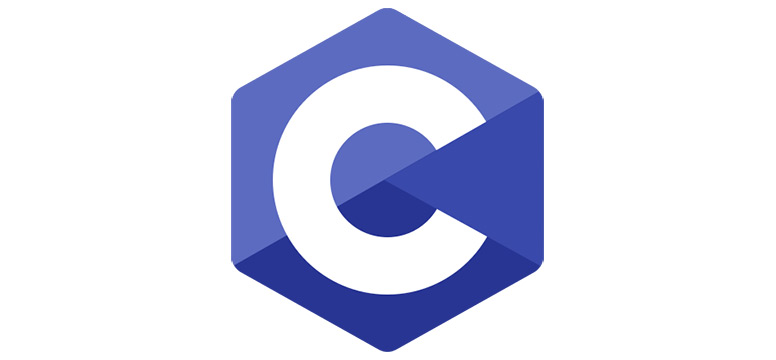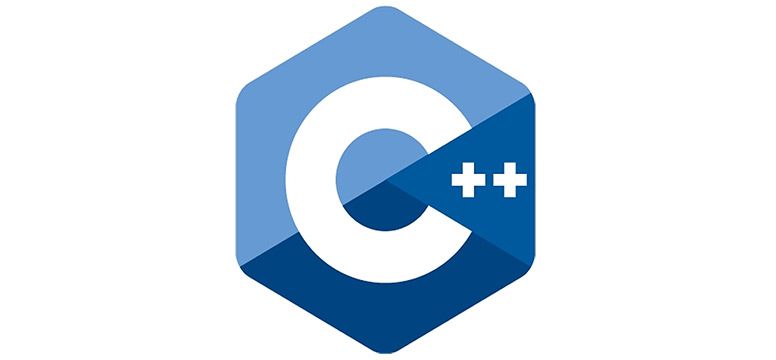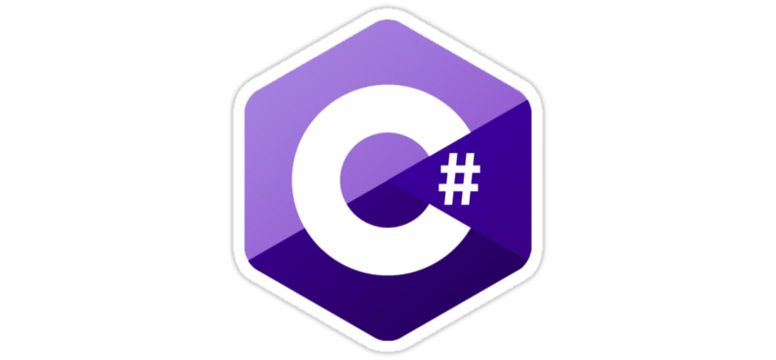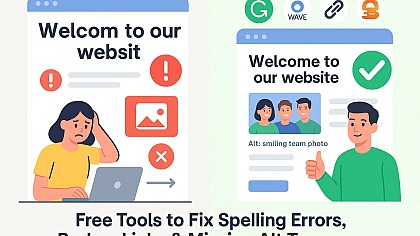
The Most Popular Programming Languages to Learn
According to the established definition, a formal language for writing computer programs is commonly called a programming language. It defines a set of lexical, syntactic, and semantic rules that determine the appearance of the program and the actions that the executor will perform under its control. The main characteristics of modern programming languages include:
- Accessibility. In any place and at any time, you can find enough information on the data of the language for its study and use. This is a big plus.
- High efficiency. When using programming languages, labour efficiency is increased by abstracting from specific hardware details.
- The ability to reuse previously written software blocks that perform certain actions by identifying them and then accessing them.
- Prevalence. We use programming languages quite often without even noticing it. Many programs, applications, or games are written in universal programming languages or have algorithms.
Today, programming languages are used mainly in the following areas:
- Development of applications, programs, games, etc.;
- Study in schools and higher educational institutions, including colleges, universities, and academies;
- Creation of complex robotic systems (in robotics) at different levels of complexity;
- Creation of virtual spaces saturated with subject content.
Programming can be called a coherent logic that plays an important role in all spheres of life.
List of the Best and Most Common Programming Languages to Learn Today

There are quite a lot of languages in the field of programming at the moment, but not all of them are recommended for learning. Below you will find a list and a brief description of the languages that deserve your attention.
Python

It is one of the most widespread and continuously evolving general-purpose web programming languages. The syntax of the language is not complicated at all. Because of this, it has a few basic commands and differs from other well-known programming languages in its simplicity. According to experienced programmers, one of the Python's pluses is its ease of perception and wide variety of programming styles. Among the main styles available are Functional, Structural, Functional, Imperative, Object-Oriented, and Aspect-Oriented. In general, the main advantages of the language are the following:
1. The ability to check every small part of the program and correct errors promptly;
2. Compatibility with various platforms;
3. Extensive standard library.
Disadvantages of the Python programming language:
1. Relatively low compilation speed, which is a problem for many interpreted modern coding languages.
2. A huge variety of shortcomings in the system code itself.
3. Due to the use of dynamic typing, various errors with data types may occur during file transfer in large projects.
The Python programming language is a high-level language, quite new, but very popular. It is already widely used in practice, and the scope is constantly expanding. The language has a lot of variations that are used to solve any kind of problem on various platforms. Among them: PyPy, Iron Python, Stackless, etc.
PHP

PHP (Hypertext Preprocessor) is a popular server-side scripting language used for developing dynamic websites and web applications. It was created in 1994 by Rasmus Lerdorf and has since become one of the most widely used programming languages on the web.
Advantages of PHP:
1. Easy to learn: PHP is an easy-to-learn language, making it accessible to new developers. The syntax is simple and intuitive, making it easy to write and read code.
2. Open Source: PHP is an open-source language, which means it's free to use and distribute. This makes it an ideal choice for small businesses or startups that may not have a lot of money to invest in software development.
3. Large community: PHP has a large community of developers who contribute to its growth and development. This means that there are many resources available to developers, including tutorials, forums, and open-source libraries.
4. Platform-independent: PHP runs on a variety of platforms, including Windows, Linux, and macOS, making it a versatile language for web development.
5. Extensive documentation: PHP has extensive documentation available, making it easy for developers to find solutions to common problems.
Disadvantages of PHP:
1. Security: One of the biggest criticisms of PHP is its security. It's relatively easy for inexperienced developers to write insecure code that leaves websites vulnerable to attacks.
2. Inconsistency: PHP's inconsistency can be frustrating for developers. There are often multiple ways to accomplish the same task, which can lead to confusion and mistakes.
3. Performance: PHP is not as fast as some other programming languages, such as Java or C++. This can be a problem for websites with a lot of traffic or complex functionality.
4. Limited scalability: PHP can be difficult to scale for larger web applications. It can be challenging to maintain code quality and performance as the application grows.
5. Lack of modern features: PHP has been criticized for its lack of modern language features, such as strong typing and functional programming capabilities. While there are some efforts to add these features, PHP still lags behind some other languages in this regard.
PHP is a popular language that is widely used for web development. While it has some advantages, such as ease of use and a large community, it also has some disadvantages, such as security issues and limited scalability. Ultimately, the decision to use PHP will depend on the specific needs of the project and the experience level of the development team.
Java

Java is also on the list of the best programming languages today. Therefore, you should study it. This language was developed based on the well-known programming language C and is intended for OOP. Its main difference is the use of a virtual machine, due to which the program code is processed regardless of the device's hardware and operating system. Among the main advantages of Java, the following should be highlighted:
1. Sufficiently developed libraries that work effectively without any additions;
2. High level of program compatibility;
3. Sufficient ease of development;
4. Computer networks have built-in support for work.
The disadvantages include:
1. Extensive use of the machine's RAM, and as a consequence, poor performance and long waits;
2. Since this language was developed relatively long ago, among its main and additional tools, you can find components with absolutely identical functionality.
Java is widely used today for developing mobile applications. In addition, a fairly large number of languages in web projects are part of the Java family.
C

The C language is a universal programming language. It is characterized by the parsimony of expression, modern control flow and data structures, and a rich set of operators. C is not a "very high-level" language and is not intended for a special application. However, the lack of restrictions and the generality of the language make it more convenient and efficient for many tasks compared to more powerful languages. The undoubted advantages of the C programming language are:
1. The high speed and compactness of the resulting machine programs are the efficiency behind which the language is widely used in writing embedded applications.
2. Low-level features are in demand when creating embedded applications and system programs.
3. Widespread popularity and availability of compilers for a very large number of platforms.
Among the shortcomings of the language are the following:
1. C constructs were originally designed for professionals, and, therefore, the text of the program is not always clear to a novice programmer.
2. Due to the weak control of the programmer's actions, more errors are potentially made when programming in C than when programming in Modula-2, Oberon, or Ada.
C++

The C++ programming language was developed in the early 1980s. Nevertheless, it is classified as modern because it is popular not only among specialists but also used by high-level professionals. C++ was created based on the C programming language, so it has some disadvantages:
1. Sometimes awkward syntax. This is the reason for frequent errors, the identification and subsequent elimination of which can be difficult. The problem of syntax, along with the complex specification of the language, makes it difficult to learn the language.
2. A long and often not very clear program code, which causes a slowdown in compilation and difficulties in the operation of programs;
3. Poorly implemented module support.
Despite the shortcomings, the C++ language has many advantages:
1. Ease of processing by the compiler of the C++ language. Code in C++ can be ported to C with very little modification, and vice versa.
2. Almost absolute versatility. C++ is great at solving almost any programming problem.
3. Cross-platform and small requirements for computer power.
4. The ability to use any programming style: Generative, Functional, Object-Oriented, or Structural. Although compatibility with the C programming language is important when choosing a programming style, users prefer C++ because it is easier to write code in it.
C#

The C # language, developed by Microsoft, is also one of the best and most well-known modern programming languages. It is popular in the development market in various countries of the world. The analysis of the C# vs Java job market illustrates that C# is used when working with PC programs, creating complex web services, or mobile applications. It appeared as a custom language for the Microsoft .NET platform. The key benefits of the language of the following:
1. The C# language claims to be truly object-oriented;
2. A component-oriented approach that contributes to less machine-architectural dependence on the resulting program code, high portability, flexibility, and ease of program reuse;
3. Focus on code safety (compared to C and C++);
4. Unified typing system;
5. Extended support of event-oriented programming.
No one will argue that the advantages of the C# language are good enough, but at the same time, there are several disadvantages to consider:
1. Difficult syntax that not every novice in the field of programming can understand (75% borrowed from Java, 10% borrowed from C++, 5% borrowed from Visual Basic);
2. A small number of new, unique conceptual ideas (no more than 10% of language constructs);
3. Low performance (it can be compared with Java);
4. Not a cross-platform language. Taking into account the fact that C# is developed by Microsoft, it is only available for use on the Windows operating system. However, a cross-platform version of this language is already being developed at the moment.
JavaScript

JavaScript is a client-side scripting language used to create content for the web along with HTML and CSS. It is supported by all modern web browsers. Like all languages designed for programming, JavaScript has some pros and cons that should be considered. The main benefits of JavaScript are:
1. Speed. JavaScript is usually very fast because it often runs right in the client's browser.
2. Simplicity. The syntax of JavaScript is based on the syntax of the Java programming language. It is quite easy to learn compared to the syntax of C++ and other programming languages.
3. Load on the server. Since JavaScript is a client-side language, the need for servers is greatly reduced. For simple applications, a server may not be required at all.
In contrast to these numerous advantages, there are two disadvantages:
1. Browser support. Even though the same result is produced by server-side scripts, the interpretation of JavaScript code by browsers can be different. Today, these differences are practically not traced and, therefore, insignificant.
2. Security on the client's side. Since the implementation of JavaScript code always takes place on the client side, there is a risk that various omissions and errors will be exploited for malicious purposes.
So, we have reviewed the seven most popular coding languages to learn. It is rather difficult to answer the question of which language is best since each has its advantages and disadvantages. Knowing the basics of these programming languages will help you choose the best one.















COMMENTS